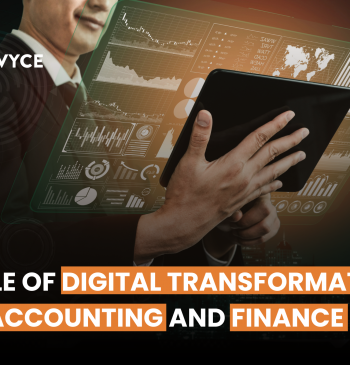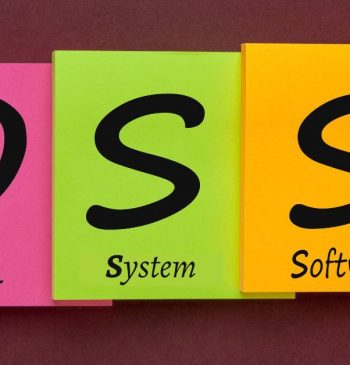17 May

The financial industry is transforming with the advent of smart contracts. These self-executing contracts, with the terms of the agreement directly written into code, promise to enhance efficiency, security, and transparency in financial transactions. This article explores the role of smart contracts in financial agreements, their benefits, challenges, and future potential.
What are Smart Contracts?
Smart contracts are digital contracts that, upon the achievement of specified criteria, automatically carry out and enforce their terms. Smart contracts use blockchain technology to guarantee that the terms of the contract are met without the need for human involvement, as contrast to traditional contracts that must be carried out manually. Coded instructions that launch particular operations when predetermined conditions are met are used to accomplish this automation.
Benefits of Smart Contracts in Financial Agreements
Efficiency and Speed
One of the most significant advantages of smart contracts is their ability to streamline processes. Traditional financial agreements often involve multiple intermediaries, paperwork, and lengthy approval processes, leading to delays. Smart contracts eliminate the need for intermediaries by automating the execution process. Once the predefined conditions are met, the contract is executed immediately, reducing the time and effort required to complete transactions.
Cost Reduction
Transaction costs can be reduced significantly by using smart contracts to remove intermediaries and automate processes. Typically, financial institutions charge fees for their services, which can add up, especially for complex transactions. Smart contracts reduce these costs by cutting out middlemen and reducing the need for manual oversight.
Security
Blockchain technology provides a high level of security for smart contracts. The decentralized nature of blockchain makes it resistant to tampering and fraud. Each transaction is encrypted and linked to the previous one, making it nearly impossible for unauthorized parties to alter the data. This security feature is crucial for financial agreements, where the integrity of the contract is paramount.
Accuracy and Precision
The manual processing of contracts is prone to human error, which can lead to costly mistakes. Smart contracts eliminate this risk by executing agreements precisely and accurately through code. All terms and conditions are met exactly as specified, reducing the possibility of errors and misunderstandings.
Applications of Smart Contracts in Financial Agreements
Securities and Trading
Smart contracts can revolutionize the securities and trading sector by automating the issuance, settlement, and trading of securities. For example, smart contracts can be used to automate dividend payments to shareholders or execute trades based on predefined criteria. This can lead to faster and more efficient trading processes, reducing the risk of fraud and errors.
Insurance
The insurance industry can benefit greatly from smart contracts. Claims processing is often a lengthy and complicated process that can be streamlined with automation. Smart contracts can automatically trigger claim payments when certain conditions, such as the occurrence of an insured event, are met. This can lead to faster payouts and improved customer satisfaction.
Loans and Mortgages
Smart contracts can simplify the process of obtaining loans and mortgages. By automating the approval and disbursement process, smart contracts can reduce the time it takes to secure financing. Additionally, they can enforce repayment schedules and automatically trigger penalties for late payments, ensuring compliance with the loan terms.
Cross-Border Transactions
Cross-border financial transactions are often subject to delays and high fees due to the involvement of multiple intermediaries and different regulatory environments. Smart contracts can facilitate faster and cheaper cross-border transactions by automating the process and ensuring compliance with local regulations.
Asset Management
In asset management, smart contracts can be used to automate the execution of investment strategies. For instance, a smart contract can automatically rebalance a portfolio based on predefined criteria, such as asset allocation thresholds. This can lead to more efficient and timely investment decisions.
Challenges and Considerations
Legal and Regulatory Issues
One of the main challenges facing the adoption of smart contracts in financial agreements is the legal and regulatory environment. Many jurisdictions have yet to establish clear legal frameworks for smart contracts, leading to uncertainties regarding their enforceability and compliance. Financial institutions need to navigate these complexities to ensure their use of smart contracts is legally sound.
Technical Limitations
While blockchain technology offers numerous advantages, it also has limitations. For example, scalability issues can affect the performance of smart contracts, especially when dealing with a high volume of transactions. Additionally, coding errors or vulnerabilities in smart contracts can lead to unintended consequences, highlighting the need for thorough testing and auditing.
Adoption and Integration
Integrating smart contracts into existing financial systems can be challenging. Financial institutions may need to overhaul their infrastructure and processes to accommodate the new technology. Additionally, the adoption of smart contracts requires a certain level of technical expertise, which can be a barrier for some organizations.
Security Concerns
While blockchain technology is secure, smart contracts themselves can be vulnerable to attacks if not properly coded. Hackers can exploit vulnerabilities in smart contract code, leading to financial losses. Therefore, it is essential to implement robust security measures and conduct regular audits to mitigate these risks.
Conclusion
By automating and optimizing procedures, cutting expenses, and improving security and transparency, smart contracts have the potential to completely transform the financial sector. Smart contracts are a useful instrument for financial agreements, notwithstanding certain obstacles to be solved. Smart contracts have the potential to significantly influence how finance is shaped in the future as the technology develops and becomes more widely used.
Marjina Muskaan has over 5+ years of experience writing about finance, accounting, and enterprise topics. She was previously a senior writer at Invyce.com, where she created engaging and informative content that made complex financial concepts easy to understand.
Related Post
Copyright © 2024 – Powered by uConnect



Marjina Muskaan